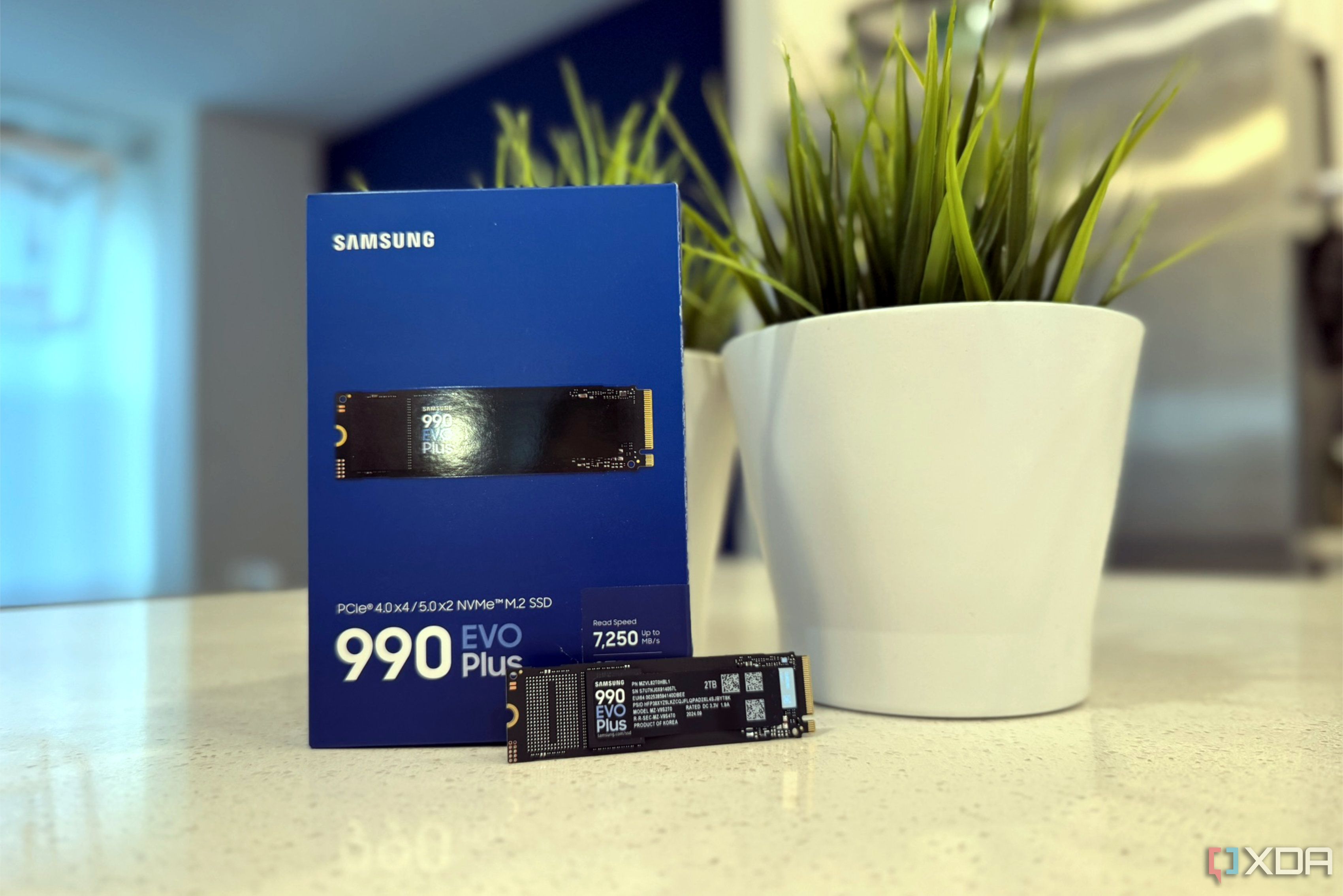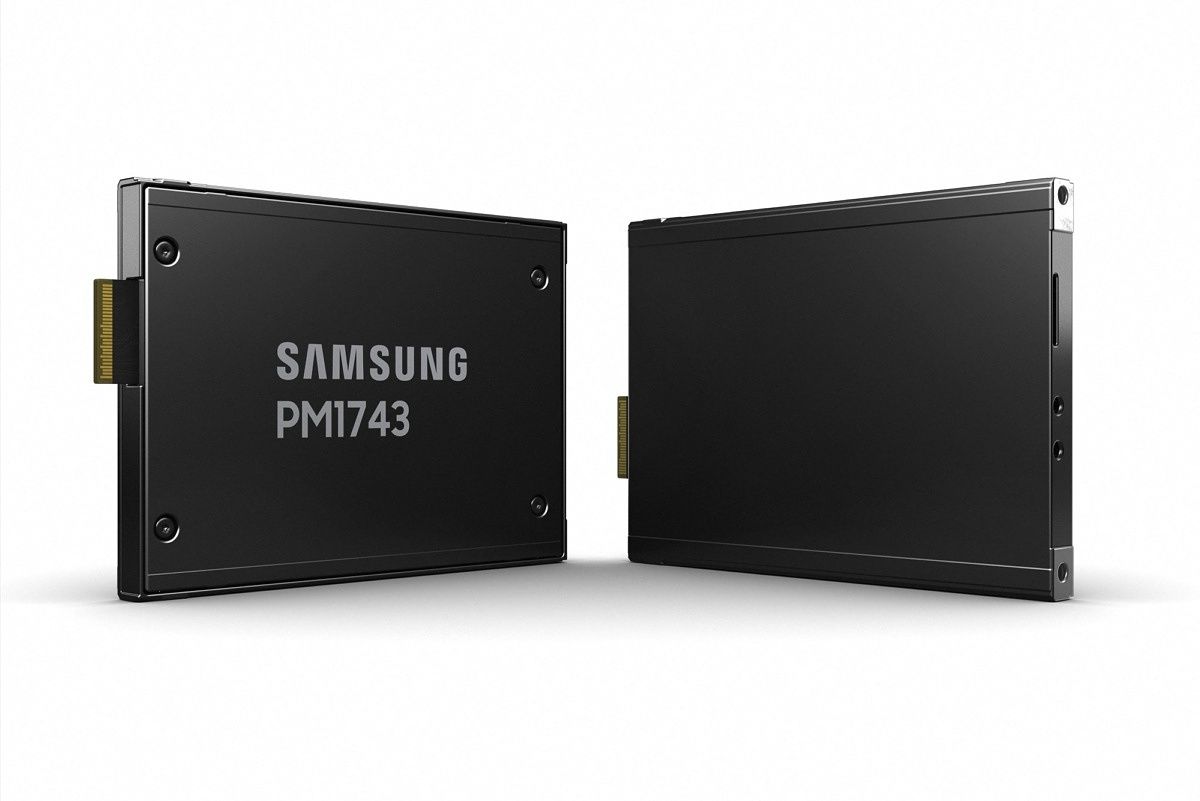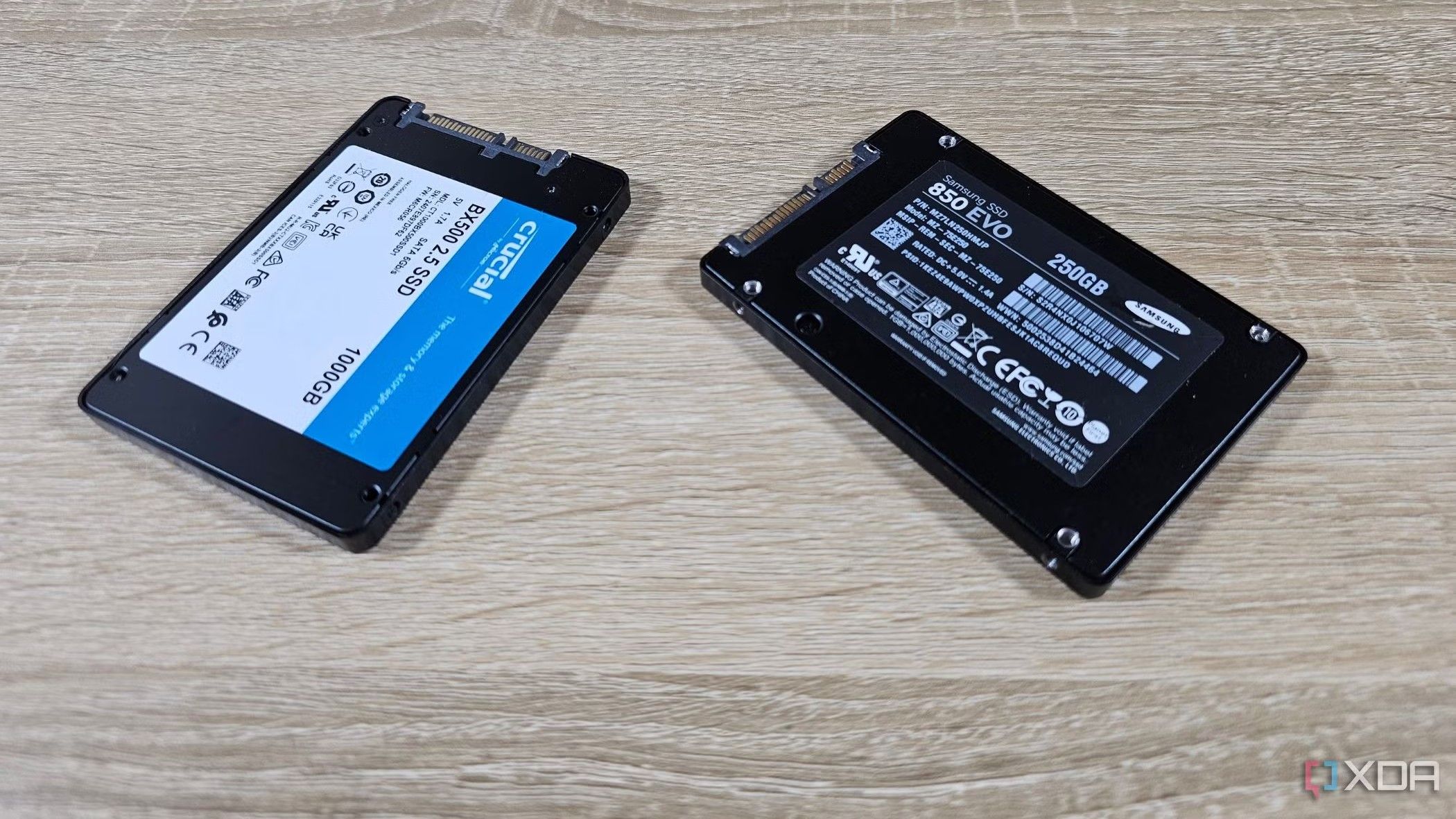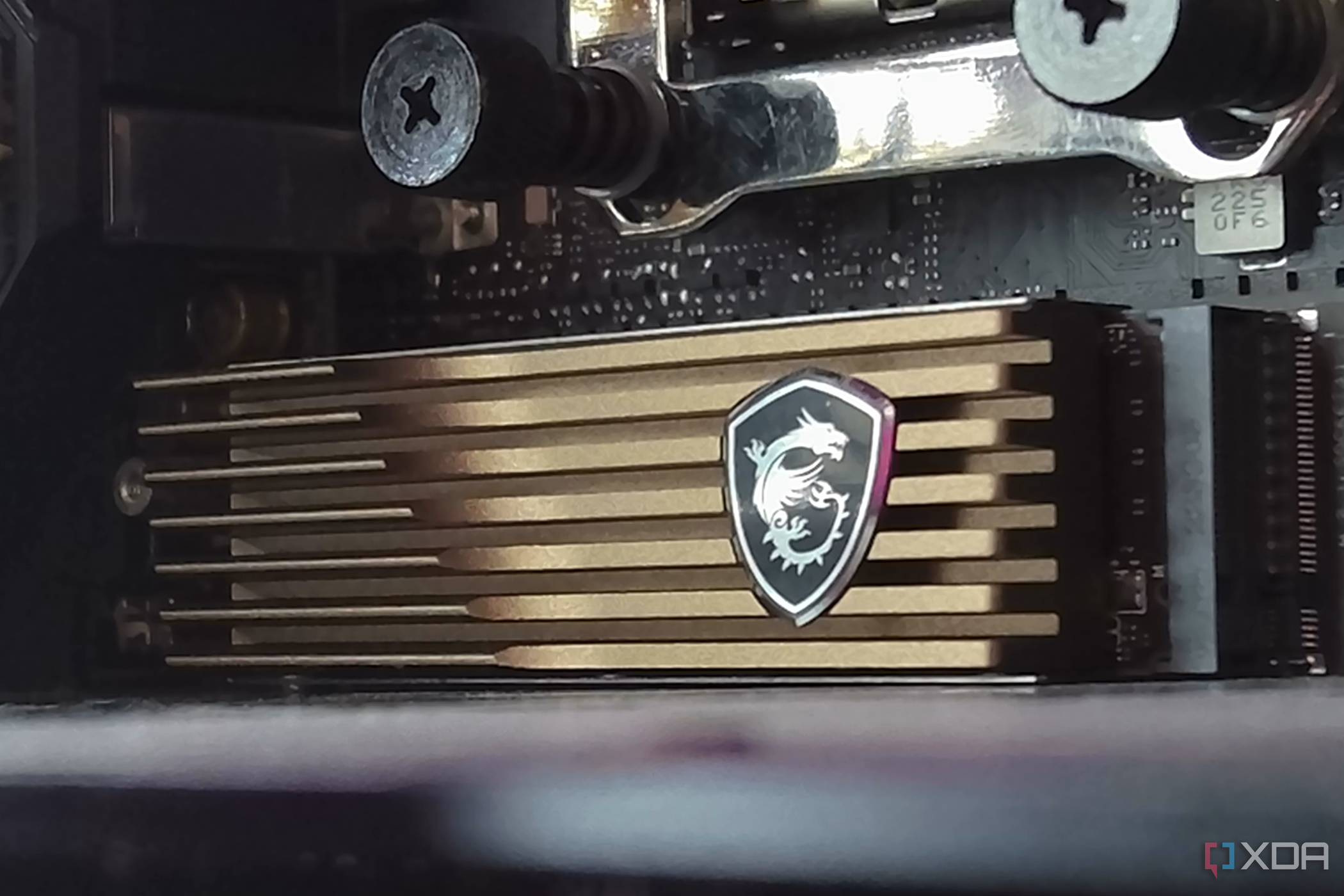For many PC builders and tech enthusiasts, the go-to choice for fast storage is almost always a brand-new consumer SSD. After all, they are fast, readily available, and affordable. However, I’m deliberately opting for used enterprise-grade SSDs instead of their brand-new consumer counterparts. This isn’t just about chasing a bargain; it's a calculated decision to strike a balance between durability and consistent performance.
Let me explain why I plan to follow this unconventional strategy for reliable and powerful storage.

Related
5 ways an SSD makes hard drives obsolete, aside from the obvious
SSDs are obviously faster than HDDs, but that's not the only reason they're better.
Better durability and longevity
Designed to run 24/7

This is the most compelling reason to opt for used enterprise SSDs. Unlike their consumer counterparts, which are designed for typical desktop use (bursts of activity, then idle periods), enterprise drives are engineered from the ground up for the high demands of data centers.
You can imagine a server farm where thousands of SSDs are constantly reading, writing, and processing data around the clock, year after year. They are built with higher-grade NAND flash, more robust controllers, and often superior power delivery components compared to what you find in most consumer drives.
A typical consumer 1TB SSD might have a rating of 300-600 TBW (Terabytes Written). In comparison, an enterprise 1TB SSD, even a used one, can easily boast TBW ratings in the thousands (3000 TBW, 5000 TBW, or even higher). This means an enterprise drive is rated to handle 5-10+ times more write cycles than a consumer drive. Even if a used enterprise drive has already used 20-30% of its massive TBW rating, it still has a large amount of life left for typical home use, which is far more than a brand-new consumer drive.
Many also feature Power Loss Protection (PLP) via onboard capacitor. While it’s not a major concern for a home user like me, its presence highlights the drive’s overall robust design.
Consistent performance
Even under high workloads

When we look at SSDs, our eyes often go straight to the peak sequential read and write speeds advertised on the box. While numbers like 7000MB/s or 5000 MB/s sound impressive, they don’t tell the full story. These are initial burst speeds, and their performance can drop once that SSD cache is exhausted (during a large file transfer, video rendering, or intense gaming session).
Enterprise SSDs are designed for sustained performance. After all, in a data center, there is no ‘burst and idle’; it’s constant, heavy I/O. Whether it’s firmware, controllers, or NAND configurations, they are designed to deliver a consistent level of high performance over extended periods.
And thanks to their ability to handle deep queues (hundreds of thousands of concurrent requests), a home user can experience snippier multitasking, faster application loading, and smoother performance while running multiple demanding programs or even virtual machines.
An enterprise SSD also has advanced internal management and robust firmware optimization, and it delivers a satisfying experience for users who push their systems.

Related
3 reasons you should have a dedicated SSD just for games
Keeping your OS and games on separate SSDs might actually make sense
Cost-effective
Reliability at a discount
Like any high-end industrial equipment, enterprise SSDs depreciate quickly once they leave the data center environment. A drive that can cost a large corporation hundreds of dollars can often be found on the secondary market for a fraction of its original price, often 20% to 25% of its initial cost.
You can often purchase a 1.92TB used enterprise SATA SSD for the same price, or even less, than a new 1TB mid-range consumer NVMe or SATA SSD. This is a significant advantage in terms of raw storage capacity per dollar.
When calculating the cost per gigabyte ($/GB), used enterprise SSDs often offer a much more attractive figure, especially at higher capacities. Also, mind you, you are not sacrificing quality. You are buying an over-engineered product for your typical home/enthusiast workload.
Tips to buy a used enterprise SSD
Before you click the buy button, make sure to keep these pointers in mind.
- You should prioritize sellers who specialize in server or enterprise hardware. They are more likely to offer a proper test drive and even offer a short window (30 to 90 days) of warranty.
- If the price is unbelievably low, it could indicate a faulty drive or a seller trying to offload problematic stock.
- You can even use a tool like CrystalDiskInfo to check health status, power-on count, power-on hours, percentage used, and more.
The case for enterprise SSDs
While the simplicity and comprehensive warranties of new consumer SSDs remain appealing, I believe that the unmatched endurance, consistent performance, and cost-per-gigabyte of used enterprise SSDs present a far more intelligent long-term investment for many.
I highly recommend taking a bit of extra time to research and carefully select your drives. The idea is to unlock professional-grade stability and speed without the premium price tag. So, before you hit the buy button on that next consumer drive, consider stepping into the world of used enterprise SSDs. While you are at it, make sure to check out these specs.
.png)











 English (US) ·
English (US) ·